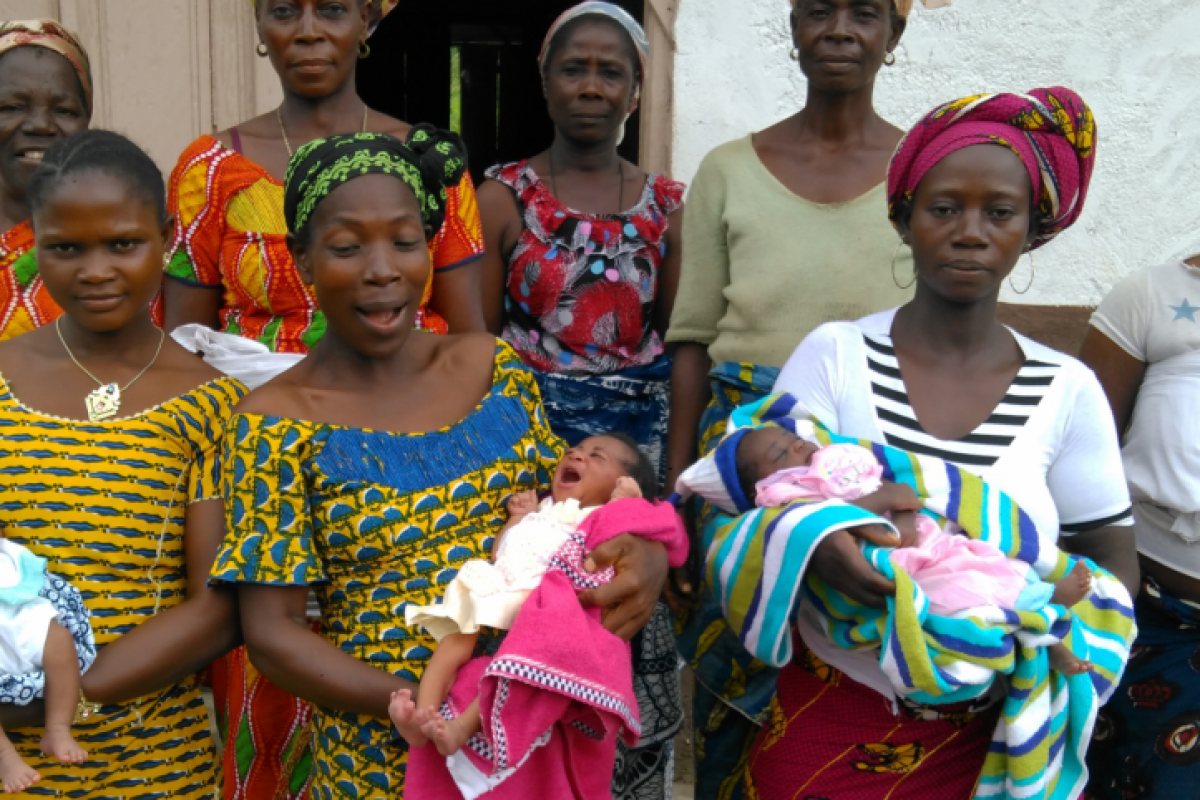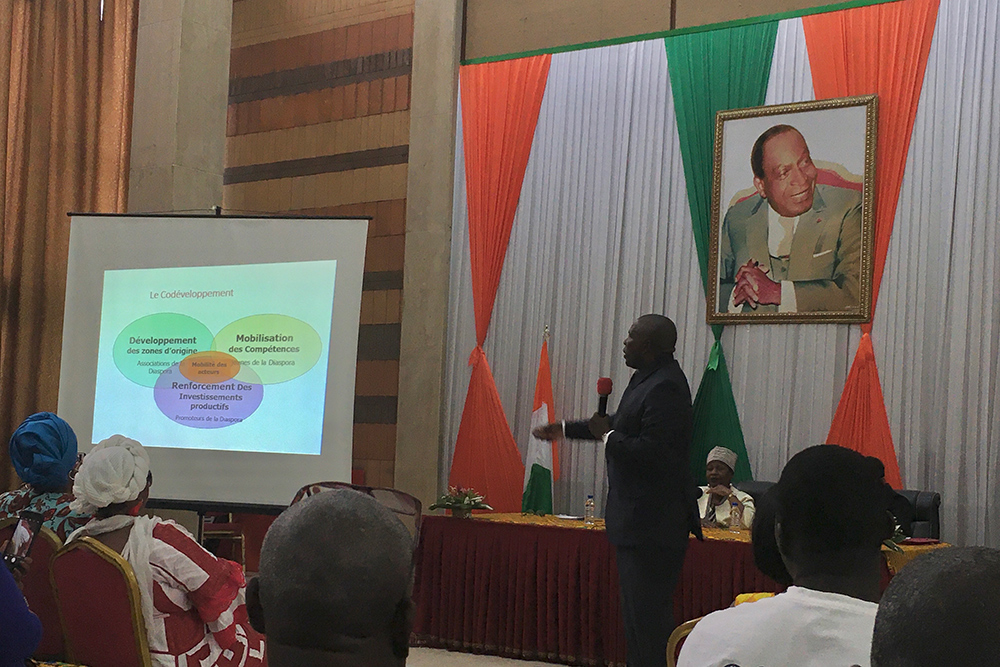How the Migration Diaspora Contributes to Developing Their Countries of Origin

By Abigail Maristela and Benoit Mayaux *
While engaging in sometimes challenging integration processes in their new homes, migrants also care for their communities back home. Many go so far as putting in place development projects and forming diaspora associations. The work of these networks can improve the lives of migrants and communities involved.
Development projects led by migrants organized in diaspora communities are changing the lives of communities in their countries of origin. These projects cover a wide range of areas from education to agriculture to health, among others.
A good example is the work carried out by the ACZA (Association Culturelle Zassa d’Afrique) to reduce the incidence of female genital mutilation in Ivory Coast. ACZA works in the Tonkpi region, where the phenomenon is particularly widespread.
The organization’s staff understand the cultural context and traditions of West Africa, where female genital mutilation is often tied to initiation rituals. They meet with matrons (traditional doulas) to raise awareness of the dangers of the practice and propose alternative ceremonies that do not involve mutilation, but that do recognize the matron’s traditional know-how. They also work to improve the wellbeing of women and girls by establishing women’s centers, offering literacy trainings and promoting school enrollment through sponsorship.
“When members of the diaspora are seen as agents of development in their countries of origin, this positive view gives them a sense of empowerment and helps challenge other negative views of migration,” says Patrick Rakotomalala, Secretary General of FORIM (Forum des Organisations de Solidarité Internationale issues des Migrations).
FORIM, a Paris-based network of migrant-led organizations working to contribute to development projects in their countries of origin, organized the first-ever diaspora-led event on diaspora mobilization and co-development in Abidjan, Ivory Coast on 14-15 November 2019. The meeting, which brought together professionals from several fields and countries, was part of the MADE West Africa Project managed by International Catholic Migration Commission’s Europe office.
Involving Local Communities
For MADE West Africa project officer Abigail Maristela, “The diaspora is perfectly situated as a development actor, having the personal experience, growing capacity and ties to the country and government to make for long-lasting change.”
Moreover, event participants from Mali and Morocco made it clear that diaspora organizations do not work on development projects on their own. Government authorities and local communities are crucial partners that need to be involved. Even though diaspora members are from the country where the project is taking place, locals who live there permanently can better identify needs, carry out implementation and ensure community support.
It’s Not Just About Money
The diaspora’s impact goes well beyond financial development. Diaspora members also play a role in social and political arenas as actors influencing change. Event facilitators from FORIM’s funding facility for micro-projects showed how diaspora members can empower themselves and people in their country of origin by challenging the way women’s participation is viewed.
Women face specific challenges in both their countries of origin and destination. Their access to healthcare, education, training and housing can be hampered by their legal status, financial resources or family obligations. Reaching autonomy requires financial mechanisms and social outreach to ensure that women of the diaspora are not lost between spaces but are full components of both.
Diaspora members also have skills they can share with people in their country of origin, modeling a training-of-trainers approach. Representatives from diaspora organizations such as CABCI (Coordination des Associations Burkinabé de Côte d’Ivoire) and FECODEV (Femmes et Contributions au Développement), shared their expertise in this field. CABCI is one of the organizations that received a small grant from the MADE West Africa project to maximize the Burkinabe diaspora’s contribution to development in Burkina Faso.
The event also focused on regional migration within West Africa, an example being the Burkinabe diaspora in Ivory Coast. The population of Burkinabe origin in the country is estimated between one to four million, which makes it one of the largest diasporas in West Africa. These communities residing in Ivory Coast contribute to the development of Burkina Faso, mostly through remittances, which amount to one third of all remittances received by the country.
The MADE West Africa Network

The event’s focus on diaspora co-development addressed one of MADE West Africa’s three main focus areas: maximizing the contribution of diasporas to the development of countries of origin by promoting innovative cooperation frameworks between diasporas, development NGOs, national/local authorities and the private sector. This focus area is implemented by FORIM and the African Foundation for Development (AFFORD).
The recommendations from the event will be included in roadmaps advocating for specific and realistic commitments and actions by parties present at the meeting. All MADE West Africa partners will disseminate their roadmaps in the Spring of 2020.
Since 2017, ICMC Europe’s office and FORIM have worked closely on the topic as partners in the MADE West Africa project. FORIM is a platform of diaspora organizations based in France, engaged in integration activities in their host country as well as development initiatives in their countries of origin. Created in 2002, it is composed of 30 members, representing more than a thousand grassroots, diaspora-run nonprofit organizations.
The meeting in Ivory Coast was supported by UIAFFIF (Union Interfedérale des Associations Féminines et Femmes Ivoiriennes en France) and CODD (Collectif Ivoirien de Promotion des Initiatives de Développement Durable).
* Abigail Maristela is the MADE West Africa project officer and Benoit Mayaux is a project manager at FORIM.